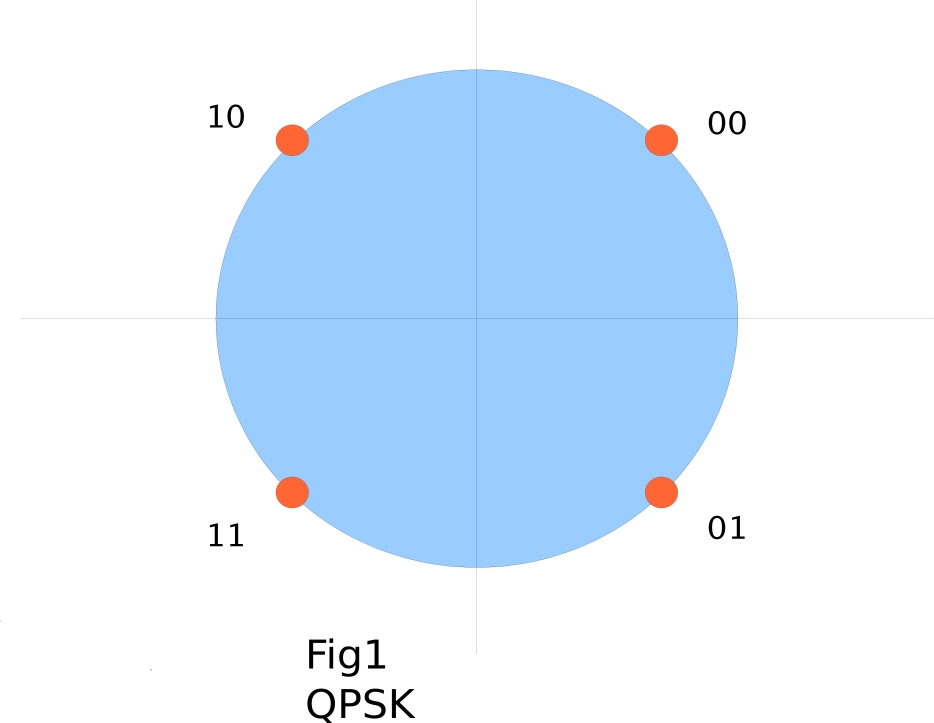Quadrature Phase Shift Keying: Difference between revisions
Jump to navigation
Jump to search
No edit summary |
(added: image qpsk in time domain) |
||
| Line 1: | Line 1: | ||
A [[Modulation Scheme]] where the [[Phase]] of the modulated signal is shifted depending on the incoming bitstream by an angle of -135°, -45°, +45° or +135°. Thus 4 states (a two-digit binary symbol) can get expressed in every transition. |
A [[Modulation Scheme]] where the [[Phase]] of the modulated signal is shifted depending on the incoming bitstream by an angle of -135°, -45°, +45° or +135°. Thus 4 states (a two-digit binary symbol) can get expressed in every transition. |
||
[[Image:Qpsk.jpg|QPSK in time domain]] |
|||
In order to minimize the used [[Bandwidth]] allocated on the [[Transponder]] the outgoing signal is usually filtered using digital low-pass [[FIR Filter]]s with smooth roll-off so that the high-order noise of the sudden state changes gets removed. |
In order to minimize the used [[Bandwidth]] allocated on the [[Transponder]] the outgoing signal is usually filtered using digital low-pass [[FIR Filter]]s with smooth roll-off so that the high-order noise of the sudden state changes gets removed. |
||
''let's place the famous four-modulation-point-phasediagram-picture here...'' |
|||
Revision as of 22:06, 23 September 2004
A Modulation Scheme where the Phase of the modulated signal is shifted depending on the incoming bitstream by an angle of -135°, -45°, +45° or +135°. Thus 4 states (a two-digit binary symbol) can get expressed in every transition.
In order to minimize the used Bandwidth allocated on the Transponder the outgoing signal is usually filtered using digital low-pass FIR Filters with smooth roll-off so that the high-order noise of the sudden state changes gets removed.
